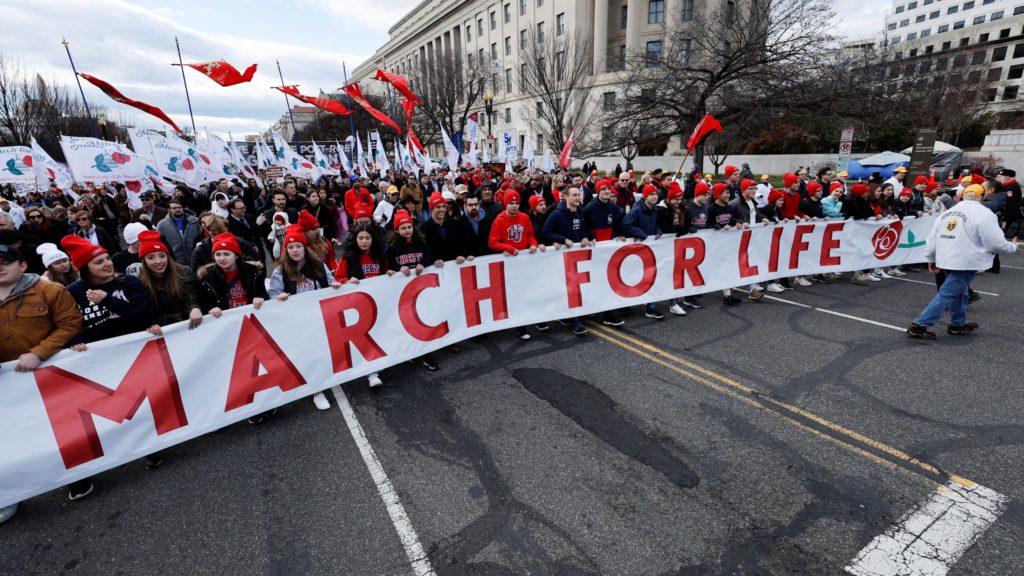The March for Life's theme for its 2024 event will be "Pro-Life: With Every Woman, For Every Child," the group's president announced Nov. 14.
The March for Life first took place in Washington in 1974 in response to the U.S. Supreme Court's Roe v. Wade decision legalizing abortion nationwide the previous year. Pro-life advocates have gathered in Washington to march each year since then to protest the ruling, with a smaller-in-scale event during the COVID-19 pandemic in 2021.
After the high court reversed Roe in 2022, marchers still gathered to protest abortion. Each year, the group selects a theme that it says fits the cultural moment. Jeanne Mancini, March for Life president, said that following the court's ruling in Dobbs, she wanted to highlight the work the pro-life movement does to support women facing difficult or unplanned pregnancies.
At an event in Washington, Mancini said the theme was selected due to what she called "the false narrative around abortion, whether it's through mainstream media or the entertainment industry or academia, is that abortion is empowering and necessary."
"We disagree," she said. "Such fear-based messaging tries to convince women who are facing unexpected pregnancies that they're alone, that they are incapable, that they are ill-equipped to handle motherhood. We who are here today know that is just not true. We aren't saying that it's easy. But we are saying that it is right to choose life and we hold that choosing life is empowering, and that love saves lives."
Mancini said that she wanted to highlight "the vast pro-life safety net" from pregnancy resource centers to state resources, including the Mississippi Access to Maternal Assistance program -- or MAMA program -- administered by the office of the Mississippi Attorney General Lynn Fitch, R-Miss., which connects pregnant women and families with resources for parents. Fitch argued the Dobbs case before the Supreme Court.
Mississippi Deputy Attorney General Whitney Lipscomb said at the Nov. 14 event that "in the Dobbs case we asked the Supreme Court to return the issue of abortion to the states, for the people through their elected leaders to decide how to best promote the dignity of life and support mothers and children."
"And when the Supreme Court did just that, it became incumbent on all of us to find ways to match the compassion in our hearts with the compassion and justice in our laws," Lipscomb said, adding that the MAMA program connects public and private resources, ranging from medical care during pregnancy to food stamps to job training.
"When a woman is facing an unexpected pregnancy, what she most needs to hear (at) that moment is you can do this," Mancini said.
The national march is scheduled for Jan. 19. The 2024 event will take place in both a presidential election year, and one that could bring additional ballot measures on abortion, possibly in states including Arizona and Florida.
Ohio voters on Nov. 7 approved Issue 1, a measure that will codify abortion access in the state's constitution through fetal viability, typically understood to be 24 weeks gestation, and beyond, if a physician decided an abortion was necessary for the sake of the mother's life or health. The loss marked another electoral defeat for anti-abortion ballot measures in the wake of the Supreme Court's Dobbs decision: In 2022, voters in California, Kentucky, Michigan, Montana, Vermont and Kansas either rejected new limitations on abortion or expanded legal protections for it.
The March for Life said some of the speakers at its 51st include singer Danny Gokey, as well as Pastor Greg and Cathe Laurie. Former NFL tight end and founder of the Watson 7 Foundation, Benjamin Watson, will be speaking at the Rose Dinner, which follows the event. The group said a full speaker list will be announced prior to the event.

